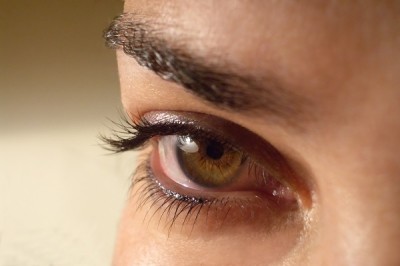 Do you suffer from sensitive eyes, or eyes that become irritated or red easily? Several factors may cause these symptoms. Determining the cause of the problem is the first step to obtaining relief. Let’s take a look at some common causes of eye discomfort.
Do you suffer from sensitive eyes, or eyes that become irritated or red easily? Several factors may cause these symptoms. Determining the cause of the problem is the first step to obtaining relief. Let’s take a look at some common causes of eye discomfort.
Do you have Dry Eyes?
Are your eyes uncomfortable? Do they feel mildly gritty or dry? Are they worse after doing close work or after working on a computer? Are your eyes tired? Does the white part of the eye look red frequently? Are you sensitive to bright light and changes in temperature? Does wind or low humidity make your eyes feel worse? Do your eyes sometimes feel like they are burning? If you experience these symptoms, you may have dry eyes
What Causes Eye Irritation, Redness and Dryness?
Dry eyes are more common as we age. Tear production may be reduced due to medications or as a result of physiological problems of the eyes or tear ducts. Smoke, allergies and exposure to chemicals in the environment may be factors. Fatigue, windy weather, and eyestrain often make dry eyes feel worse.
Conjunctivitis is redness of the mucus membranes inside of the eyelids. Often the white part of the eye is red as well. Conjunctivitis may be caused by allergies, viruses and bacteria.
If eye irritation is due to allergies, you may suffer from watering of the eyes. Systemic and localized treatments may be needed to relieve eye irritation due to allergies
If you get a foreign body in the eye, you may need professional help. Prompt treatment is essential. If you get chemicals in the eye, flush the eye for a minimum of 15 minutes with water and seek professional assistance.
Welders who do not utilize protective eyewear may experience severe eye pain several hours after welding. Professional help is needed. The eyes will need to be covered with a patch.
The Secret “Survival Vitamin” You Should Buy And Bury Immediately!
Occasionally you may experience a different type of eye redness. You may see a small bloody looking spot on the white part of the eye. It is usually painless and localized. This is the result of a small blood vessel breaking. While unsightly, it will simply disappear on its own. If you have recurrent episodes of broken blood vessels, or if the blood vessel breakage is due to an injury, seek professional help promptly.
Pink Eye
If you wake up in the morning and find that your eyes have thick drainage, you may have a bacterial or viral infection. The eyeball may be very pink. This is commonly known as pink eye. If pink eye is due to bacteria, it is very contagious. Seek professional assistance. You may need an antibiotic. If you have pinkeye, you will need to stay home from work for 24 hours after beginning treatment. Use scrupulous hand-washing to prevent the spread of this uncomfortable condition.
Treatment of Sore Eyes
Here are some tips to help relieve dry, irritated and red eyes. Consult with a health care provider if irritation is severe or does not resolve rapidly with home treatments.
- Make boric acid eyewash. Follow label directions.
- Do not rub your eyes.
- Purchase an eye cup at a pharmacy. Make eyewash. Boil one cup of distilled water. Pour it over one teaspoon of eyebright or calendula herb. Cover. Let the tea steep for 20 minutes. Strain the tea carefully, using a coffee filter. Using the eye cup, rinse the eyes two to four times daily. Always make a fresh batch of tea each day and keep the tea refrigerated in a tightly closed container. If you do not have an eye cup you may soak a clean cloth in the tea and make an eye compress.
- Use over-the-counter or prescription eye drops. Homeopathic drops are available.
- Close your eyes and lie down with a cool, moist black tea bag on your eyes. The tannins and other compounds in tea shrink swollen blood vessels. Puffiness, irritation and redness disappear.
- Place a thick slice of a refrigerated cucumber over closed eyelids while lying down.
- Take herbal supplements designed to improve eye health.
- Eat blueberries and other dark blue and purple fruits and vegetables. They contain phytochemicals which enhance eye health.
- If you are taking medications, check with your health care provider to see if they may be causing dry eyes. If they may be, ask your health care provider if an alternative medication is avilable.
- Drink plenty of fluids.
- Wear sunglasses outside.
- Manipulate your indoor environment as needed. For example, in winter, keep a kettle of boiling water on the stove to increase the moisture content of your home. Sit away from fans.
- Take a cool shower.
- Whenever you are applying drops, compresses, or other treatments to the eyes, wash your hands thoroughly with soap and water prior to and after applying the treatment. Do not touch the tips of eye drop dispensers to the eye or lids. Do not touch the tip of the dispenser with your hand. If the dispenser tip inadvertently touches your hand, eye or any other surface, dispose of the medication.
- Seek professional help as needed.
Sign up for Off The Grid News’ weekly email and stay informed about the issues important to you










